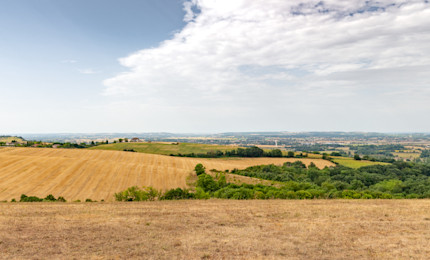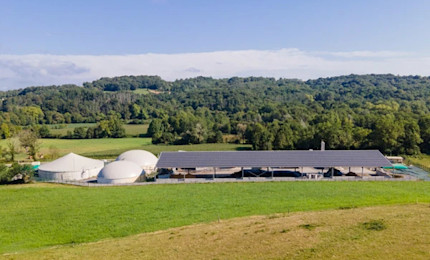Urgence gaz 0 800 028 800

From the energy of yesterday to tomorrow: towards a renewed and renewable energy mix
Energy management has profoundly changed our society. Today, we know the way we live, based for the most part on a localised fossil fuelled energy system, is having an impact on our planet. That is why we are looking at solutions to achieve a successful transition towards an energy system that is renewable, diversified and from delocalised sources. Back… to the future!
Yesterday: energy driving the growth of our society
The evolution of energy sources is closely linked to the evolution of society. Mastering fire, wind and water, and using wood, coal, oil and gas have profoundly changed the course of humanity.
It was the marriage of coal and steam which, at the end of the 18th century, gave birth to the first industrial revolution. That was just the start of a long process, intensified in the 20th century by electricity.
The first nuclear power stations in France were built in the late 1950s. Alongside this, large-scale hydroelectric dam projects were developed. In the 1960s-70s, oil was booming. But two oil crises (1973 and 1979) soon encouraged us to consume less oil and look to other resources.
Today: global warming, the consequence of how we live
The use of fossil fuels is actually the prime source of emissions of CO2, the main greenhouse gas (GHG), which causes global warming. Climate change is affecting the frequency, intensity, extent and duration of unprecedented weather phenomena: persistent drought, extreme precipitation etc.
Alongside this, new ways of living and consuming are developing, focussing on three areas:
Energy frugality: consuming less by changing our habits (circular economy, recycling, car sharing etc.).
Energy efficiency: consuming more effectively and thus obtaining better results from less energy, particularly in housing.
Decarbonised energy production: consuming – and producing – renewable energy without an impact on the environment.

Tomorrow: a renewed and renewable energy mix
For some years now, the energy industry has been experiencing major upheaval. It faces a number of unprecedented challenges:
a drastic reduction in greenhouse gases to combat global warming,
the creation of a large European energy market,
increasing numbers of actors,
tighter regulations,
digital transformation.
These are the challenges of energy transition. The word “transition” refers to the change from a fossil-fuel dominated energy system to a decarbonised system.
How do you forge a link between the traditional energy model and the decarbonised model of the future?
A number of avenues are being explored, to transform our energy system and make it more sustainable and more environmentally friendly:
Renewable energies
Originating from renewable sources, these enable us to stop depending on fossil fuels. Their production also causes fewer greenhouse gas emissions. Whole sectors are developing massively, such as solar power, wind power and hydro, but also biomethane, hydrogen and synthetic methane.
These renewables can be produced locally and thus boost economies at the regional level, establishing a virtuous circular economy. Biomethane, for example, is produced from household, agricultural and food industry waste. It therefore enables farmers, industries and local authorities to give their waste a second lease of life.
Clean mobility
A number of different approaches are being studied and rolled out as alternatives to traditional automotive fuels: Natural Gas for Vehicles (NGV), electricity, hydrogen and more… These solutions are based on cleaner forms of energy.
NGV, for example, emits 90% fewer fine particulates than diesel. Natural gas can also be replaced with biomethane, which can be put to the same uses. BioNGV is even more virtuous, being renewable.

Multi-energy grids
At present, the different energy networks (gas, electricity, heat) operate independently of one another. Moving towards multi-energy systems means improving the complementarity of the different forms of energy and avoiding waste. It means producing the right amount of energy, and directing it to the best use in the best form. Multi-energy is a strategic issue for energy transition and for Teréga, which is currently working on a multi-energy grid demonstrator: IMPULSE 2025.
Faced with the environmental challenges, gas presents itself as a resource of the future, combining control of greenhouse gas (GHG) emissions, waste recycling, renewable energy production, the circular economy and clean mobility. That is Teréga’s whole strategy: to make energy transition a lever for innovation and economic development.








